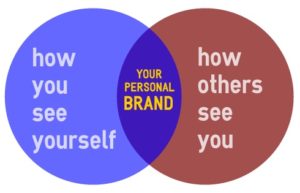
One of the most beautiful things about having an office without walls is all the places it allows me to go while remaining connected with my clients. During one of my most recent journeys I traveled to Atlanta, GA for a Professional Success Summit hosted by the American Bar Association’s Section of Litigation and found myself surrounded by some of the most venerable trial attorneys in the country and a wealth of valuable information. Here is some of what I took away….
On the morning of Wednesday, November 16, 2016, a warm and anticipatory buzz was in the air. Conference attendees once again packed themselves into the first-floor ball room at the Ritz Carlton Buckhead in Atlanta, Georgia for a third and final day of presentations. Conference schedule materials listed the nine-o’clock hour as slotted for a panel presentation on “The Intangibles: Self-Investment, Branding and Coaching.”
Branding and brand management have become increasingly recognized value creators for any individual, or business, seeking to grow and succeed in the legal field. This makes them a career and business management priority. Aware of this phenomenon, the audience sat at attention ready to soak-in what was coming next. As ABA President Linda Klein wrapped up her remarks, the morning’s panelists, Janice P. Brown and George K. Schell, were introduced. What followed was a thoughtful and energetic presentation, exploring the nature of brand, and insightfully intertwining it with an understanding of the concept of leadership responsibility.
Personal Branding & Self-Investment:
“Personal branding is how you are talked about when you are not in the room,” Ms. Brown presented some of the bottom-line truths about personal accountability when it comes to building and maintaining your professional mark, reputation, and credibility. Digging even deeper, Ms. Brown intimated some additional branding principles reminding participants that “you must be consistent to be effective” and that “once people see you being inauthentic, you potentially lose their trust,” adding a new layer to the concept of branding as a conscious daily practice.
Through consistent and deliberate practice, we play an active role in ensuring that we are presenting an authentic self in our daily interactions. To do this, we must begin with intention and vision. “The most critical component of anything we do is how we feel about ourselves” Janice stated. She went on to provide a list of three important parts of maintaining a clear vision (i) dispelling negative and limiting beliefs; (ii) replacing them with positive affirmations; and (iii) changing your beliefs to meet your vision.
When the goal is changing another’s already formed perception of you or your brand, your success will be largely determined by your willingness to make the first move, be authentic and remain consistent. A perfectly timed power-point slide drove Ms. Brown’s point home. It read, “If your solution to the problem is that somebody else needs to change, then you’re doomed.”
Leadership of Self:
The concept of personal branding as a responsibility to exercise awareness of how others view us, our business, and ultimately our work-product, flowed seamlessly with Mr. George Schell’s discussion on leadership of self.
“We all have an obligation to our organizations to conduct ourselves as leaders every day,” said Schell. A statement that rang true to all listeners whether government, private, large firm or small. “Employees have to live up to the leaders they are watching represent them,” he went on to share.
Mr. Schell explored the importance of flexibility, growth and modeling accountable behavior by encouraging attendees to start taking a self-awareness approach to managing failure.
Addressing the audience, Schell instructed the group to “[l]ook in the mirror.” He encouraged listeners to begin with looking at their own actions, (and inactions) while making note of what they bring to the table, both positive and negative. Mr. Schell gregariously explained to the attentive crowd, that admitting our mistakes, and communicating failure, while keeping a keen eye and open mind out for the “good” in a situation is empowering. It gives us the ability to turn any tragedy in to a triumphant victory, known to some as a “teachable moment.”
“It’s all about the humans,” he joked with the crowd on several occassions throughout the morning presentation. He left the audience with three points to consider for modeling accountable behavior: (1) Empower and inspire -by demonstrating a willingness to be (i) adaptable (ii) accountable and (iii) real; (2) Listen -talk less; and (3) Have fun.
Janice P. Brown (Brown Law Group) is based out of San Diego, California, and can be reached at brown@brownlawgroup
George K. H. Schell (Coca-Cola Company; Council of Better Business Bureaus) can be reached at gschell@council.bbb.org
Author: Sahmra A. Stevenson (S.A. Stevenson Law Offices) can be reached at s.stevenson@saslawoffices.com (@SAS_Law; IG: SahmraStevensonEsq)
I do not even know how I ended up here, but I thought this post was good.
I don’t know who you are but definitely you’re going to a
famous blogger if you aren’t already 😉 Cheers!